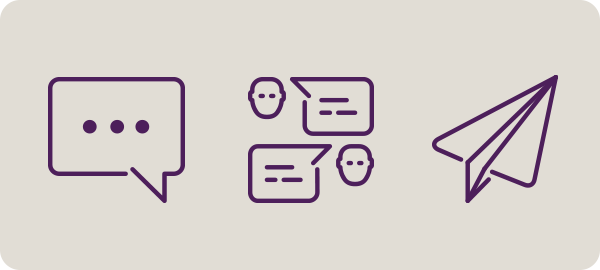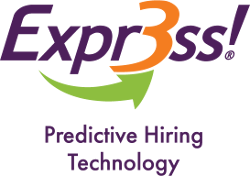How are you preparing for the influx of candidate applications? We suggest making a list of technologies that can assist with remote recruiting.

During the COVID-19 crisis, the safety of employees and candidates required shifting to remote capabilities. Whilst a number of hiring tasks will be completed face-to-face, a lot of tasks can easily be completed remotely now with smart technology.
Recruitment tools that were once seen as a nice-to-have, have now become essential.
Dispersed HR and recruitment personnel working from home have continued to function effectively because they have been quick to adopt these tools. Below we present a number of tools and strategies to help in this regard.
Adapt Existing Strategies to the Remote Hiring Processes
Firstly, we suggest making a list of technologies that can assist with remote recruiting, for example tools such as:
- online psychometric testing
- self-serve interviews
- AI telephone interviews
- video
- online referencing
- online employee onboarding
- email and SMS
- social media

RELATED
Recruiting Now, What Next?
Think about how all these technologies can be utilised to help you and your recruitment and HR colleagues stay safe and well through this time too, yet gain a thorough appreciation of the people you will consider for your next important hires. Then simply map out your hiring processes and identify those stages or tasks that could be accomplished with those tools.
If you are indeed fortunate enough to have an ATS that combines the power of these tools and predictive hiring technologies then you’ll be free to concentrate on team development, succession planning and company culture.
Greater Insights to Candidates with Psychometrics
Internal company recruiters can use technology designed to assess and shortlist candidates via online psychometrics providing greater applicant insights and removing bias. HR professionals are looking for ways to diversify their hires.
These times call for employees that are adaptable and flexible. HR and recruitment teams to be able to recognise these qualities in potential candidates and employ workers from anywhere to suit various volumes and support needs, depending on the situation.
Candidate Self-Serve Interviews
Whether you are arranging a single interview, telephone interview, Zoom or group interviews this is the time when people need flexibility with their arrangements.
Instead of the usual telephone tag trying to lock in interviews, invite candidates to choose their own interview times using self-service interview calendars that integrate with your own calendar.

By using a self-service calendar it will streamline so much of the communications between you and your candidates and stop all the wastage time for everyone.
AI Telephone Interviews
During these times of having to work from home, the phone interview can be tricky.
Recruiters can turn to AI telephone interview calls to help identify top applicants without needing to be on the phone all day or worrying about what is happening in the background.
The recruiter gains greater knowledge of the personality, communication style and language skills of the applicants too.
The results are just like you were speaking with the candidate over the phone. Hear the audios of applicants and their responses as you would on a telephone call as if you made it yourself.
Video Screening and Interviews
When it comes to interviewing or initial screening, video can be used ahead of the final interviewing process. Video can be used to pick out suitable candidates quickly, allowing more time to connect with them directly when ready for that final interview.
Look for video screening technology that forms part of your recruitment software so that it is seamless for applicants.
The beauty of video screening is that it is a-synchronous and can be completed at a convenient time for both parties so as to avoid the unexpected background incidents like this which can be unsettling to everyone involved in a live interview situation.
Determine the questions you would normally ask at interview and include them as your video questions. Look for the video technology that works across all devices and particularly mobile and gives the candidates the opportunity to be at their best when responding to the questions.
Save a few more in depth behavioural questions for that final interview.
Online Referencing
Online candidate referencing can protect businesses against candidate fraud. Now is the time to take up references early to inform your decision making to ensure your best hire. Ignorance is costly.
These are challenging times. Unemployment will be higher, with more people chasing fewer jobs for quite a prolonged period. The temptation to be less than truthful will increase.
Online referencing tools will allow you to do the important task of taking up references quickly and easily. They are convenient for the referees and the applicant is engaged with the process.
Acquiring reference data early enables you to use references as an additional selection tool, adding another dimension that will improve your selection accuracy.
Rigorous automated referencing systems with tight two-way integration into your recruitment software helps businesses hire the best possible talent sooner and with fewer resources.
Online Meetings to Perform Onboarding
Recruiters are adapting to the onboarding stage of recruiting by going online.
From letters of offer, through employment contracts to all those pesky documents and forms, the onboarding systems that tightly integrate with your hiring technology platform will save you so much wasted time.
Once onboard consider the use of online meetings as an efficient way to line up trainings or facilitate meetings with coworkers and maintain an unhindered communication line during the initial stages of the new hire.

With a number of online tools available for video conferencing like Zoom, Google Hangouts, Skype – recruiters can onboard applicants irregardless of their distance from the office or other meeting locations.
Social Media to Brand Promotion
Companies can do more social media marketing to promote their company’s brand and engage with candidates. Online social platforms are a fantastic tool to connect, and share information with people. Since most candidates also house bound, social media usage will increase making it more worthwhile to be present amongst them.
Enhance your company’s brand and engage with prospective employees on social media.
It is important to take control of your online image with employee testimonial videos or applicant experiences all of which can be used to enhance the future reach of hiring campaigns. Remember to include these videos, team photos and job descriptions alongside your job ads for potential applicants to see and learn more about the role and your company.
Social Media
Under-utilised, but easily accessible to companies is the ability to use social media to post jobs and find new applicants. Social media could include major platforms such as LinkedIn, Facebook, Twitter and Instagram.

Create a link from your recruitment software platform to the company’s LinkedIn, Facebook or Twitter sites. If you are fortunate enough to have over 2,000 followers on Facebook, think about adding a Careers Tab that drives applicants to your ATS.
Check what your recruitment platform is already doing to foster these social media connections to make it even simpler for you to engage applicants.
Reach more applicants on these channels by locating where your potential recruits are frequenting, they may be socialising on Facebook groups or within LinkedIn hashtags, if you don’t know, ask applicants or ask a question within your HR circles.
Text as a Communication Channel with Candidates
Texts can be used to send quick updates to applicants after their applications have been made via your recruitment system. This is an easy and fast method to communicate with applicants. On average text messages are seen quicker than emails and can be a method to keep up close and timely communication with candidates.

You can create SMS templates for quick usage that have worked well in the past and can also easily share information such as status updates, or company resources.
Utilise messaging for your candidates to liaise about their interviews. This time has people needing to be flexible with their arrangements. Giving candidates an opportunity to update you as the final interview approaches is helpful for both you and the candidate.
The COVID-19 crisis showed us that adaptation to a remote working environment can be accomplished. For some industries, recruiters continue to operate successfully with the use of the technology available, this enables them to continue benefiting their companies by locating, engaging and hiring the best applicants with less stress.
Are you another recruiter or HR professional working from home? How will this change how you hire?


